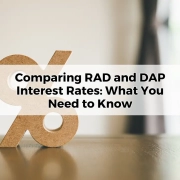Financial Checklists for Aged Care Admission
Table of Contents
ToggleThe transition into aged care is a significant milestone, often accompanied by complex financial considerations. Proper planning ensures that you or your loved one can access quality care without unnecessary financial strain. This comprehensive financial checklist simplifies the process and ensures all necessary steps are taken to secure a comfortable future.
Assessing Eligibility for Aged Care
Before proceeding with financial planning, it is crucial to determine eligibility for aged care services. This involves:
- Undertaking an Aged Care Assessment Team (ACAT) assessment.
- Understanding the different levels of care available.
- Reviewing government support and funding options.
Understanding the Costs of Aged Care
Aged care costs vary based on the type of facility and care required. Key costs include:
- Basic daily fee.
- Means-tested care fee.
- Accommodation costs.
- Additional and extra services fees.
Preparing a Budget for Aged Care Expenses
Creating a budget is essential for financial clarity. Important considerations include:
- Income sources (pensions, investments, superannuation).
- Expenses related to aged care.
- Potential government subsidies.
Evaluating Financial Assets and Income
A thorough review of assets and income streams ensures financial readiness. Steps include:
- Listing all assets (property, shares, superannuation, savings).
- Assessing income from various sources.
- Determining Centrelink/DVA entitlements.
Understanding the Impact on the Age Pension
Entering aged care can influence Age Pension entitlements. Consider:
- How asset and income tests apply.
- The impact of selling a family home.
- Strategies to maximise pension benefits.
Reviewing the Family Home Decision
Deciding whether to sell, rent, or retain the family home is a major financial decision. Factors to evaluate:
- Implications for aged care fees.
- Tax consequences.
- Centrelink/DVA treatment of the home.
Exploring Payment Options for Aged Care Fees
Payment strategies can influence long-term financial stability. Options include:
- Paying in lump sum (Refundable Accommodation Deposit – RAD).
- Paying in periodic instalments (Daily Accommodation Payment – DAP).
- A combination of RAD and DAP.
Reviewing Estate Planning Considerations
Aged care admission necessitates a review of estate plans. Important elements:
- Updating wills.
- Reviewing powers of attorney and guardianship arrangements.
- Ensuring binding death benefit nominations for superannuation.
Seeking Professional Financial Advice
Navigating aged care finances is complex, making professional advice invaluable. Consider:
- Engaging an accredited aged care financial adviser.
- Understanding personalised financial strategies.
- Ensuring compliance with government regulations.
Monitoring and Reviewing Financial Arrangements
Financial circumstances change over time, necessitating regular reviews. Key steps:
- Reassessing investment strategies.
- Adjusting budgets as necessary.
- Staying informed about policy changes.
Conclusion
Planning for aged care admission requires a structured financial approach to ensure affordability and sustainability. By following this checklist, individuals and families can make informed financial decisions, securing a comfortable and stress-free transition into aged care.









